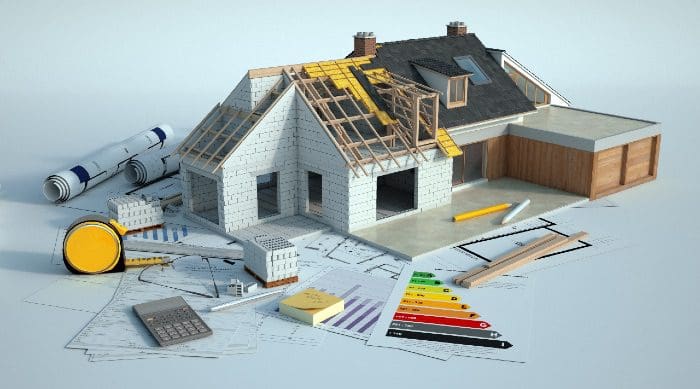
Energy-saving features reduce energy usage, leading to significant savings on electricity and heating bills. Smart thermostats, efficient appliances and renewable energy solutions such as solar panels can save homeowners hundreds or even thousands annually in energy costs.
Energy-efficient homes prioritize air quality for healthy living environments for their family members, leading to improved sleep and reduced stress levels.
Improved Comfort
Energy-efficient upgrades save homeowners money and increase the value of their property while helping create a greener environment. Many governments provide financial incentives or rebates for such upgrades, making them a wise long-term investment. Studies show that energy-efficient homes resell at approximately 5 percent more than similar traditional properties with comparable features.
Cost Savings: Energy-efficient homes are designed to minimize energy use, leading to lower electricity and heating bills for homeowners. Any initial investments made in energy-saving appliances, insulation or solar panels quickly pay for themselves in terms of reduced utility bills each month.
Energy-efficient homes provide greater occupant comfort: Their consistent indoor temperatures and improved ventilation allow occupants to remain more relaxed regardless of outside weather conditions, which is especially helpful for people suffering from respiratory ailments like asthma and allergies.
Durability and Resilience: Energy-efficient homes are constructed using superior materials and advanced technologies that make them more resilient than traditional houses, which in turn helps lower maintenance and repair costs over time. Furthermore, upgrades that make your home energy-efficient may provide protection from extreme weather conditions.
Increased Resale Value: Potential buyers have an increasing appreciation of sustainable features in homes, and are willing to pay more for properties featuring them. Demand for energy-efficient homes is expected to continue increasing as climate changes impact natural resources further.
Energy-efficient homes provide greater comfort during power outages. According to research conducted by the Urban Green Council, an average New York house dropped down to 35 degrees after three days without power, whereas an energy efficient house kept its occupants cozy and warm. Families with young children and elderly persons as well as anyone having difficulty moving around when the power goes out will find this to be particularly helpful. To keep your family as comfortable during a power outage, consider installing insulation, LED lighting and upgrading to a smart thermostat. Or take simple steps such as turning off lights when not needed or closing vents in rooms you aren’t using, using natural light during the daytime and making sure there’s enough fresh air and natural lighting.
Reduced Utility Bills
Energy-efficient homes have quickly become a real estate trend due to their many advantages ranging from cost savings and improved environmental impacts. We will explore some of these properties’ main benefits here and why they make for great long-term investments for homeowners.
Energy-efficient upgrades can save homeowners money by reducing utility bills. Insulation helps maintain an ideal temperature year-round while improving air quality; leading to decreased energy use. Smart thermostats further cut energy consumption by automatically adapting to fit homeowner preferences and needs.
eco-friendly changes can have a major effect on your utility bills and save thousands over time. Replacing lightbulbs with energy efficient ones or unplugging machines not being used are just two simple examples of changes you can make to reduce energy use at home; larger renovation projects may require more extensive overhauls but regardless of their scale will make an enormous difference to both wallet and planet alike.
Energy-efficient homes also bring with them increased resale values. According to research conducted by the National Association of Home Builders, homes featuring energy efficiency feature sell for an average of 10% more than similar non-energy efficient properties – likely due to demand for greener living environments and buyers willing to pay more for properties with reduced operating costs.
With increased focus on environmental sustainability and rising energy costs, energy-efficient homes are rapidly becoming a real estate trend. Not only can energy efficient upgrades bring financial benefits, they can also improve occupant comfort and increase resale value – whether searching for your first home or selling off an older one, take into consideration all of its advantages of energy-efficiency upgrades – you won’t regret making that choice!
Increased Resale Value
Due to climate change and diminishing natural resources, energy efficiency upgrades have become an increasingly popular trend among homeowners. Not only can they enjoy eco-friendly features during their time in the property but when selling they enjoy increased resale value due to increased buyer interest for eco-conscious homes; plus government rebates make these upgrades more cost-effective for owners.
Studies have revealed that energy-efficient homes command higher market values compared to non-energy efficient properties, with those rated highly by ENERGY STAR typically selling for 3%-5% more than comparable properties. Some popular upgrades that can be implemented within homes include replacing older appliances with energy-efficient models from ENERGY STAR; installing LED bulbs (see benefits here) and solar panels (more details); sealing air leaks; and installing energy-efficient windows among many others.
Upgrades may initially seem expensive, but their benefits more than compensate for themselves in savings on energy and heating bills over time. Plus, investment costs can often be financed using green mortgages or tax credits provided by local governments or private organizations.
Green upgrades also help homeowners remain ahead of upcoming regulatory standards and energy codes, thus helping them avoid penalties that may arise from failing to adhere to new requirements.
Investments in energy-efficient upgrades also bring the advantage of increasing comfort in a home and decreasing outside noise, which are especially attractive features to homebuyers looking for peaceful environments. Furthermore, these upgrades create healthier living conditions by decreasing light pollution levels while protecting natural darkness levels in residents’ homes.
If you plan to sell your home soon, energy-efficient features can increase its resale value significantly and attract more potential buyers. A third-party certifier can verify your home’s energy efficiency for added credibility and to demonstrate to buyers that you take sustainability seriously.
Environmentally Friendly
Energy efficient upgrades provide homeowners with a quick return on their investment through reduced energy bills and property values, while contributing to creating a healthier environment by using less fossil fuels and non-renewable energy sources, thus creating less of an environmental footprint. Eco-friendly homes may even feature on-site renewable energy systems which allow homeowners to sell back excess power back to the electric company for credits off future utility bills.
When purchasing or building a new home, energy efficiency should be taken into consideration during the design phase. Utilizing energy-saving materials, appliances and building techniques will save energy and money as well as make your new place comfortable and durable over time.
If you’re selling or buying an existing home, retrofitting it with energy-efficient appliances and systems can make your property more appealing to eco-conscious buyers and help reduce operating costs – plus there are various government rebates and incentives that may help cover some or all of these upgrades.
Homeowners who install smart thermostats can save energy by automating temperature adjustments based on their schedules, monitoring energy use from their smartphones and managing it easier from anywhere in their house or elsewhere. Energy-efficient windows and doors may help keep homes warmer in winter while remaining cool during the heat of summer.
Eco-friendly homes prioritize healthy living by installing advanced ventilation systems to continuously refresh indoor air, thus helping reduce mold, allergens, and other harmful substances from entering. In addition, these houses typically feature natural lighting and minimal noise pollution to promote better mental health and sleep quality.
As demand for energy-efficient homes increases, it’s vital that buyers understand their benefits so they can make an informed decision when making their purchase. Energy efficient homes offer many advantages over conventional ones: more cost effective, comfortable and sustainable compared to their counterparts; also environmental-friendly as well as providing numerous additional resale value increases. If you want more information on making your home energy efficient contact us now!
In conclusion, investing іn energy-efficient homes can provide numerous benefits for homeowners, including cost savings, improved comfort, increased resale value, and environmental sustainability. With the rise оf eco-friendly consciousness and the increasing demand for sustainable living spaces, energy-efficient homes have become a desirable option for homebuyers. By implementing energy-saving features such as smart thermostats, energy-efficient windows and doors, and advanced ventilation systems, homeowners can enjoy lower energy bills and a healthier living environment. Moreover, energy-efficient homes are designed tо be more durable and resilient, requiring less maintenance and repairs over time. As the real estate market continues tо shift towards sustainable living, energy-efficient homes are poised tо become a valuable investment for homeowners.
Cost оf windows іn Toronto and GTA can vary depending оn the type оf window, material, and installation method, says Canadian Choice Windows. On average, the cost оf replacing a single window іn Toronto can range from $500 tо $2,000, while the cost оf replacing multiple windows can range from $2,000 tо $10,000 оr more. However, it’s important tо note that energy-efficient windows can provide long-term cost savings through reduced energy bills, making them a worthwhile investment for homeowners іn the region. Additionally, window weather stripping can be an affordable solution for homeowners looking tо reduce energy loss and draftiness іn their homes. By sealing gaps and cracks around windows and doors, weather stripping can help prevent cold air from entering and warm air from escaping, ultimately saving homeowners money оn their energy bills.
Last Updated: February 1, 2024




















